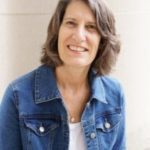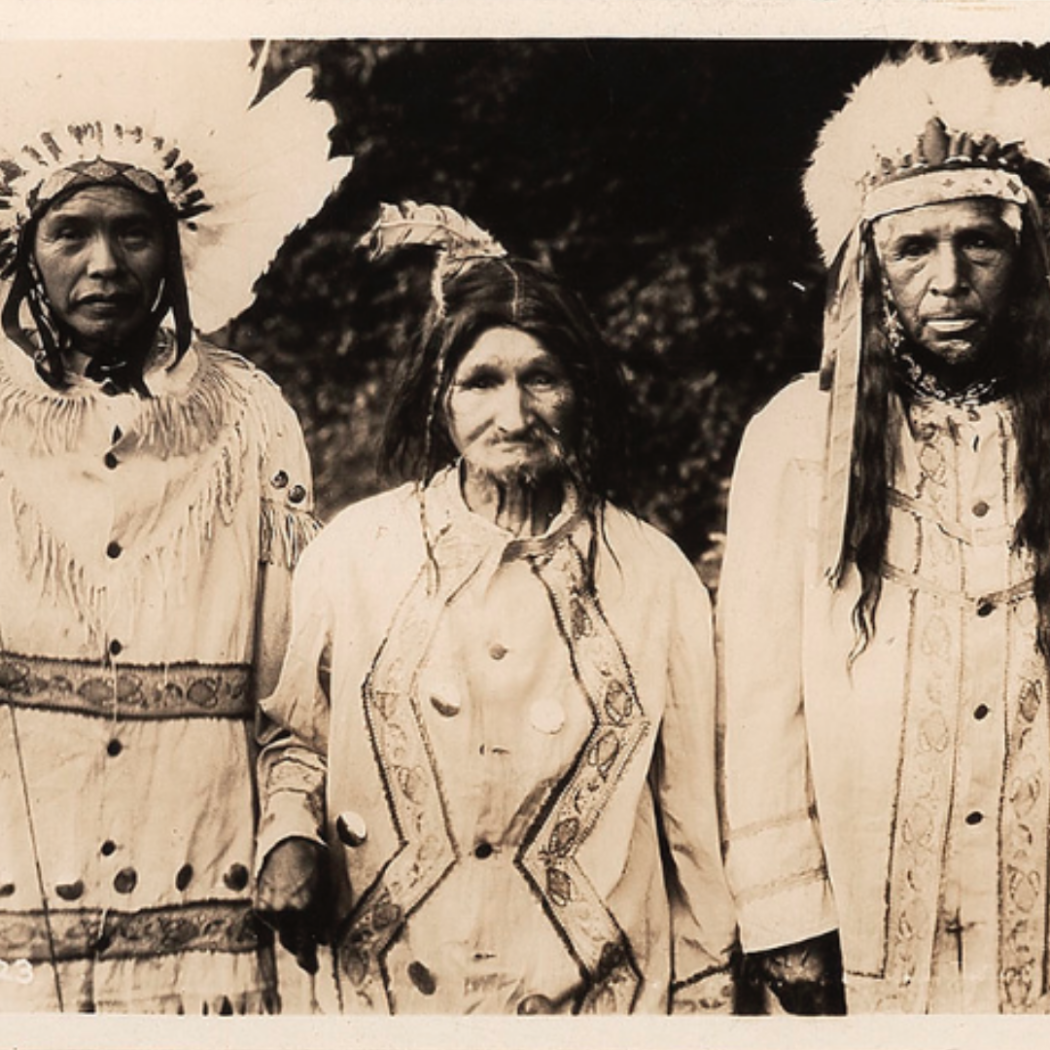 My paternal grandmother was part Cherokee, and, therefore, so was I.
My paternal grandmother was part Cherokee, and, therefore, so was I.
This is what I heard all my life, from my youngest days into adulthood. “You’ve got your grandmother’s high cheek bones,” people would say. “Her dark skin and hair. Her nose.” Yes, I did have all those things, but I looked very much like my mother, who had all those things too.
My grandmother claimed to be a descendant of Cherokee Chief Donnahoo of Yadkin County, who married an English woman named Mary Elizabeth Wentworth in the 1700s and went on to have gobs of children, grandchildren, and great-grandchildren. My grandmother, if the story was true, would have been 1/132 Cherokee. She believed so much in the Native heritage that she named one of her sons after Donnahoo’s granddaughter, Betty Pledge (a name which my uncle later repudiated), and in 1906, applied for membership in the Eastern Band of the Cherokee Indians in an attempt to receive her share of reparations paid to descendants of the Trail of Tears. She and all the nearly 800 people who applied under Donnahoo’s lineage were denied membership, because Donnahoo’s records could not be verified.
A lot of people—including well-known politicians and celebrities—claim to have a Cherokee ancestor on some far-reaching branch of the family tree. In fact, according to National Congress of American Indians scholar Vine Deloria, Americans from Maine to Washington have claimed Cherokee ancestry. “More often than not, that ancestor was an ‘Indian princess,’” says Deloria in Slate magazine, “despite the fact that the tribe never had a social system with anything resembling an inherited title like princess.” There’s a reason the myth of the Cherokee grandmother is so common: the Cherokee were a progressive people and saw great benefit in developing strong relationships with Europeans during the 17th and 18th centuries, and exogamy—marrying outside one’s clan—was common, according to Slate. In the case of Donnahoo, if all 800 alleged descendants who were denied tribal membership in 1907 multiplied through generations since, the numbers of ancestors today would be staggering.
Like Elizabeth Warren, Johnny Cash, Johnny Depp, and many, many others, I’ve said it: “I’m part Cherokee,” and I’ve pointed to that skin, those high cheek bones, those keloid scars, as proof. It’s a romantic notion, one born of a desire to belong, to be Native, as though, especially for Southerners, to claim Cherokee heritage is to be more authentic. And yet. And yet.
It’s taken me years of reading, talking, becoming more aware of who I am and who I am not to understand the truth: I am not Cherokee. I’m not even close.
I have no doubt that my grandmother believed for all of her 94 years that this was her heritage, and I honor that in her. I didn’t know her well, so I never knew how much she learned, acted upon, or embraced that culture. But I, her granddaughter, have come to realize that to be Cherokee means much, much more than to trace one’s ancestors back to the notion of a chief named Donnahoo or even to have one drop of Native blood.
To be Cherokee means to be raised in the culture and community of the Cherokee people, to have learned the traditions, to have suffered the injustices and the prejudices. Not my grandmother, not my father, and not I or my siblings were raised Cherokee. We were children from a small-town neighborhood, children of a mill worker and a teacher. “Cherokee” to us meant that place in the mountains where our maternal grandparents took us to buy tomahawks and fake headdresses.
A conversation with Nicki Faircloth, Co-director of Women AdvaNCe, helped me clarify the issue even more. She described the experience of meeting someone for the first time and getting that “dreaded” question, “What are you?”
“Every single Native person I have ever encountered has experienced this,” she says. “It’s like no matter what, YOU are never enough.”
“It’s not about what you claim in our communities, it’s about who claims you,” she continues. “So if someone did their genealogy, found the facts, participated and learned the culture, became active in the community, and then ultimately was accepted by the community and referred to as Cherokee by them, then in fact they would be Cherokee. But just to claim it when it’s convenient and never in any other context is just strange.”
“They don’t get those dreaded ‘what are you?’ questions,” Nicki says. “Nor have they experienced a lot of things our communities experience everyday, like having a parent in prison, large amounts of missing or murdered people, or everyone knowing someone with an addiction and little resources to help them. It’s easy to identify as something when it’s convenient, but to live it each and every day is another story.”
According to my family story, I have been part Cherokee all my life. But, I have come to realize, I have no right to claim this. Maybe that’s what my uncle intended when he changed his name.
I loved my grandmother, don’t get me wrong. But I loved her as the woman I knew her to be: strong-willed, hard-working, full of sass.
No, she wasn’t Cherokee, and neither am I.
And all of us with an inkling of a story need to quit saying that we are.
 Barbara Presnell lives and writes in Lexington and teaches in Charlotte.
Barbara Presnell lives and writes in Lexington and teaches in Charlotte.

Thank you for sharing. Now all those “Part-Cherokee Americans need to come to this realization that they are not Cherokee either.
This gives a lot of clarity into why people claim this. Stories told by family especially elders when they pass people good into tightly. I recommend that when people have the time they look up those records. It will bring light to a lot of things not just who is native American. Your ancestor(s) may have been white, black, Asian and so on but doesn’t mean you are. Yet knowing what they were doesn’t mean you can’t honor it and aknowledge that many streams poured in to make you and right now your stream is whatever you are now.
There is an issue with this thought process that overlooks that many with native blood were never given a chance to learn the culture of their ancestors. Perhaps their ancestors were sent to residential school, or did not register as native out of fear, and in both cases, the culture was lost.
It also validates the practice of blood quantum, which exponentially cauterizes native culture and identity, and furthers the decline of native cultures by artificially barring descendants from joining tribes and communities.
By all means, tracking your ancestry is important, but when you do find that you have native roots in your tree, claiming them and hunting for inclusion is not a false claim. It is a cry to be heard, to tell others we still stand.
While empty claims of having an ‘indian princess’ in your family tree is agreeably distasteful, if you know you have a drop of native blood and want to claim it and reconnect to that part of your history, you should.
I definitely agree, we do need the truth America is just now starting to let the Indians tell truths that history wanted to hide. I feel like not learning about my ancestors has left me feeling so misled and misplaced in this day and age. I also was told that it was an Indian princess which that makes sense to me after reading it I’ve always wanted to know or I fit in my grandmother was doing all the research and always told me that I was the last 30 second of our Cherokee bloodline she really invested most of her life on doing the research I think it would still matter with whether I was accepted into Cherokee culture or not
Yesssss!
My grandfather’s grandmother was full Cherokee, making me 1/32. His last name (and mine) is the name of the tribe. When we kids were growing up, our father (1/16 Cherokee) would tell us we were not allowed to apply for any sort of help or scholarships which we did qualify for as 1/32 Indian, for similar reasons noted by the author. He said we should leave the money in the pot for those whose lives were adversely affected by anti-native policies and attitudes. We kids had not been and never would be subject to prejudice or ill treatment, even though our grandfather had; we didn’t look enough Indian and our last name doesn’t sound typically Indian. The only ones who gave us a hard time were our non-Indian relatives, partly in fun, partly to be mean. My lineage is my lineage, and I’m neither proud nor ashamed. Our particular tribe near the Tennessee/Georgia border was involved in the African slave trade, it seems. Indians are subject to all the weaknesses and strengths of every people and culture and generation.